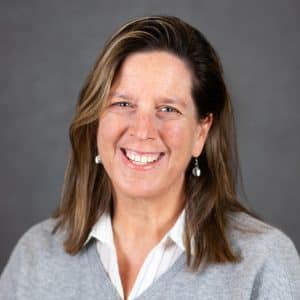Some current thought leadership from FSPA Members
Some interesting and thought-provoking posts from over on LinkedIn from three FSPA members who all happened to be writing in a similar vein without knowing it! See what you think.

From Greg Menvielle, a presenter at our recent conference in Pearland, Texas, comes this:
Lieutenant Tyler Capron has been with Boulder Fire Rescue for nearly two decades. As Peer Support Team Leader and VP of IAFF Local 900, he’s watched the fire service evolve from “suck it up” culture to something far more human.
In our latest conversation, Tyler breaks down what it actually takes to build a peer support program that lasts: policy from the top down, dedicated funding, and data that proves the value.
His message is clear: mental readiness matters as much as physical readiness.
“I wouldn’t want a firefighter who can’t climb stairs on a high-rise fire. And I wouldn’t want someone on the rig who isn’t mentally ready either.”

Ellen Yarborough is the Gifted Coordinator and Classroom Teacher in a public high school, and Deputy Chief with a volunteer fire department in Nether Providence, Pennsylvania.
Happy to see my article, Strategic Management of the Youngest Generation in the Fire Service: Why fire service leaders must ditch generational stereotypes and start managing Gen Z with science, not sentiment, posted in the November 7th, 2025 online issue of CRACKYL Magazine.
No single generation has been as thoroughly dissected in the mainstream media before they have had a chance to prove their mettle as that group of people born between 1997 and 2012. Sure, there was the Greatest Generation, shaped by the Great Depression and lauded for their efforts in helping Europe defeat fascist-led Germany. They are the subject of an entire genre of film, after all! However, they weren’t labeled as such until 1998, when journalist Tom Brokaw coined the term with his book, “The Greatest Generation.” It was a bestseller, a wonderfully written testament to the American spirit.
Here’s the kicker – did you know the idea of defined generations lacks empirical support, and the National Academies of Sciences, Engineering, and Medicine (NASEM) warn that categorization along birth year lines should not be used in management decision-making? In fact, while I have relied on Pew Research Center’s well-regarded research material for my own presentations on Gen Z in the fire service, they, too, are committing to retreating from simple generational framing and instead performing age cohort comparison studies using historical data.
Why? Because facts matter. Gen Z is more ethnically and culturally diverse than any previous generation, which may impact the way they respond to surveys and other forms of data collection, so what is often interpreted as generational differences could actually be reflective of demographic traits.

Finally, this post from two-time presenter at our FSPA conferences (2023 and 2024), Dr. Nicole Sawyer:
I’ve been hearing a growing theme from the police officers and fire fighters I chat with regularly. They feel the pulse of their communities like no one else except maybe the school teachers… ‘nothing good comes from increased food insecurity’. I know: stating the obvious.
But food insecurity isn’t just about food. It morphs into impossible decisions, like choosing groceries over medications and suddenly calls for mental health crises go up, choosing food over the electric bill and suddenly children and the elderly are at home with no hot water or heat, it becomes stress, which becomes anger/resentment/blame and unchecked feelings of inadequacy and suddenly domestics calls go up. The helplessness our first responders feel then contributes to their own interpersonal challenges. The ripples roll on.
If you’re feeling helpless and frustrated by things happening that are bigger than you- look small. Humans feel a desire to help their neighbors- its a primal instinct. Its biology. Everyone lives better when everyone lives better. Focus on what you can control, make a small impact. Those ripples roll on too.
If you have a little extra try this:
**** Make a meal and put it in your local community fridge, maybe try to make a habit of doing this once per week or month. Get the kids involved (more ripples)
**** If cooking isn’t your thing, donate milk, fresh vegetables, fruit, canned goods, or cereals to your local or church food pantry. Make it a weekly or monthly habit.
**** Prefer to support furry friends? When food is insecure for people, the pets suffer too. Donate dog/cat food to your local animal shelter.
**** Do you crochet or knit for stress relief? Add a few extra pairs of mittens or hats to your project list and donate them to your local elementary school.
When we look small, we can make a big impact in someone’s day or life. And we feel less powerless. Chemically, giving to others actually releases oxytocin, dopamine and serotonin… the hormones and neurotransmitters that are often suppressed in the brains of first responders by the excess amounts of cortisol and adrenaline that build up from doing their jobs.
Look small to feel big. 🥕 🥒 🥓 🥗 🥕 🥙 🥞 🥓 🥕 WE is bigger than ME


Responses